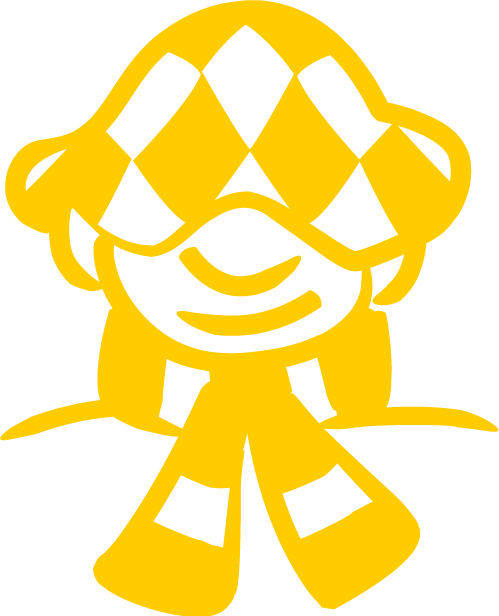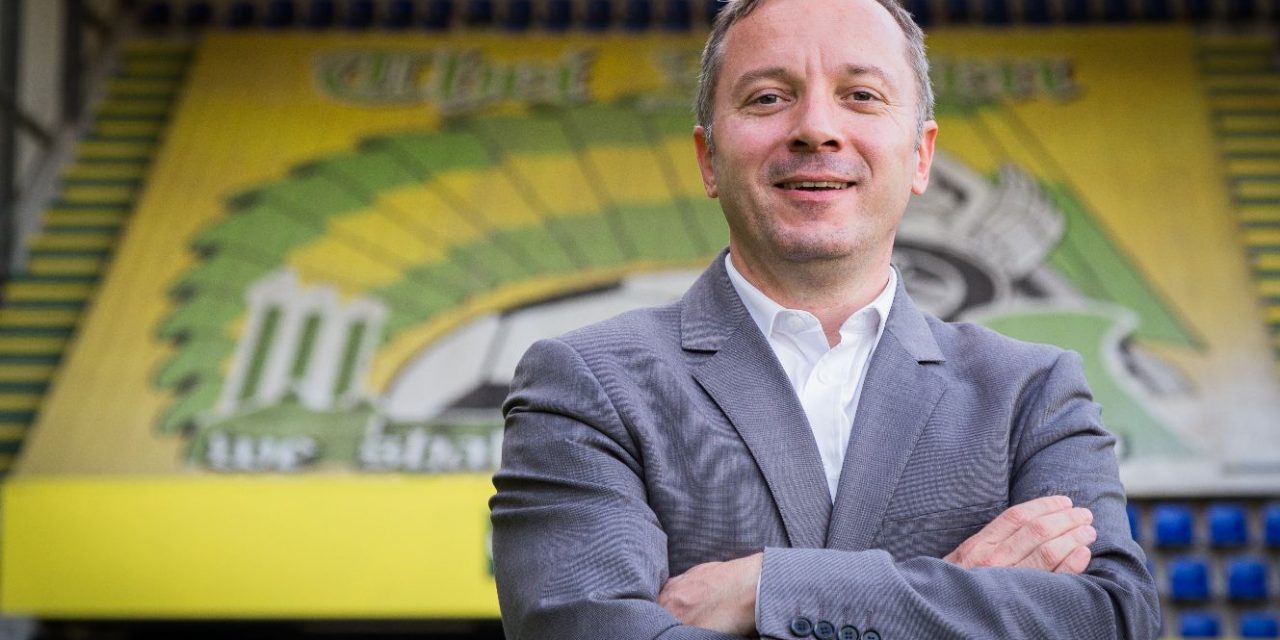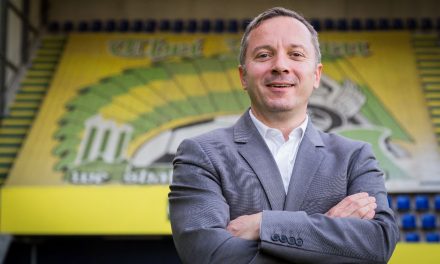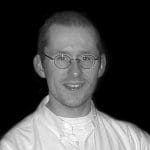Three years ago Isitan Gün took over at our club. Like in previous seasons, Fortuna Online met with him to look back at last season and forwards to the season that lies ahead. There is a difference, however. Previous interviews were taken early June, a few weeks before the build-up to the new season. This time we meet in September, on the eve of the home game against FC Twente. That means the new season is well and truly underway and the shaky start to that season will have to be taken into consideration. Nonetheless our main focus during the interview is the overall development of the club.
Lees de Nederlandse versie van het interview hier
First things first. A season ago during our interview, you predicted that Fortuna would stay up against all odds, which would “complete one of the most successful turn-arounds of a football club”. Congratulations, your prediction came true.
Thank you, it was indeed quite an achievement. But we can’t dwell on it too long. You can’t keep saying ‘look how good we did that season’. Football doesn’t work that way. As a club we have to move on.
Still, we want to start the interview with a look back at last season. How do you assess the season in general terms?
Well, it was clearly a season of two halves. In my opinion the dividing moment was the injury of Wessel Dammers. Wessel was hugely important for the team. The number of goals we conceded tells its own story. Before the break the number was normal, even better than average. After the injury, that number rocketed. Of course, it didn’t help that the replacement we signed also took a serious injury during the first training sessions. Those injuries created problems in defence, which made us vulnerable in the second half of the season. Besides, Wessel is the leader of the team. The fact that we had to make do without him, probably had a mental impact on the team, too. I believe a top ten finish would have been possible without his injury.
Most supporters probably will agree with you on the importance of Dammers to our team. Aren’t you afraid that people will expect too much of him after his return?
No, I think he can cope with a certain level of expectation. Also, let me stress that we give Wessel all the time that is needed to make his return. We won’t take any risks and we won’t put pressure on him to hasten his return.
Because of the away results we slid down the table. In the final stages of the season that must have put a lot of pressure on the team and staff. Still, the team kept its composure and brought in the necessary points at the right moments. Do you think there are people within the club who were particularly influential in coping with the pressure and difficulties?
It was an effort of the whole club. Our culture isn’t a hierarchical one. The main thing is everybody stayed positive and kept faith that we would be save at the end of the season.
For you personally, what moment was the highlight of the season?
Well, that has to be Stokkers’ goal against Vitesse. I wasn’t able to watch that game in Sittard, I watched it on television in Istanbul. We didn’t get a penalty a bit earlier. So it looked like we had to be satisfied with a draw. And then, in injury time, Finn puts away the ball in the net from such a distance. He simply decided to risk it, very unlike his normal style of play. A spectacular goal and a hugely important win.
In the past year we’ve seen changes at football-related key-positions. The Director of Football, the Head Coach and the Head of the Youth Academy all left and had to be replaced. For a club rebuilding itself that doesn’t seem to be a desirable situation. Is the club strong enough to ensure this kind of turnover doesn’t affect us adversely?
First of all, all three of them left not because they weren’t happy at Fortuna. Mustafa Aztopal and Claudio Braga got dream opportunities, Mustafa to become director at Samsunspor, his hometown club, and Claudio to become head coach in Portugal, his native country. In both cases, I didn’t want to stand in their way. And René Eijer couldn’t continue due to health reasons.
Can we cope with those departures? Yes, because we have made progress in building the organisation. There is a clear structure with defined functions. When somebody leaves, we can look for a successor from within the club or from outside the club. In a way, having the function in place is more important than the person fulfilling it. Of course, you have to find the right persons to fulfil the vacancies. I think we managed to do that.
One of the major points in rebuilding the club is the strengthening of the Youth Academy. You stressed that yourself in our interview two years ago. What progress have we made in that part of the club?
We had to start by ensuring that basic things in the Academy functioned. I’m talking about things like transport, practice grounds and so on. We have made big progress there and that has a positive effect on attracting players. More talented youth want to play for us, which means the pool to select from has widened. In the long run, that will reflect on the quality of our Academy.
We already see improvement on the field. Some of our teams got promoted, for example the U15’s. Against SC Heerenveen we saw two players making their debut in the first team, who came through the Academy. It is true, they joined us late in their development, but they were confident they were making the right choice. So there are positives already.
But it’s still a long way to go and the results can only be seen in a few years’ time. In the end, the only measure for success is the number of players that graduate through the Academy to become a first team player. Nevertheless, we’ll keep making those investments. The percentage of our overall-budget that is allocated to youth development, is above the average in the eredivisie.
How do you consider the current situation regarding the practice facilities, both for the Youth Academy and the first team?
For the moment, it is the best situation possible. We have provided stability for the Academy. And we will soon have a facility of our own for the first team in Doenrade. I don’t think it is optimal, in the long run I would still prefer one complex for both Academy and first team, preferably not too far away from the stadium. We’re still ready to invest in that, but it can only be done with the cooperation from the local council. So, for the time being, the current situation provides a good solution.
How would you describe your relationship with the local council?
Well, generally speaking it’s very positive. They were instrumental in securing Sanderbout for the Youth and cooperated in providing Doenrade for the first team. And when we had to find extra parking places around the stadium at the beginning of last season, they were very helpful.
Let’s turn our attention to the overall development of the club. Last time we talked, you predicted Fortuna could be a stable eredivisie-team once it reached its full financial potential. The first important step in the process was building the back-office team. You made significant investments in that department and also appointed a General Director, Ivo Pfennings. How do you assess the office staff at the moment?
I think they’re doing a great job, especially when you take into consideration that a lot of them are quite young. The organisation has made big progress, both in commercial and administrative affairs. And because of their youth there’s still plenty potential for growth. But a good back-office is only one necessary condition to reach your full potential. There are other factors that are more difficult to influence.
Do you think we are making enough progress?
We are making steps, but those aren’t big steps. To become a stable eredivisie-club we have to be able to increase the budget for the first team. We’re not able to cut down on expenses for back-office, accommodation and so on. So we have to aim for bigger revenues. Those revenues can come from a few sources: television deals, sponsorship deals and growth in match attendances. Another one, of course, is money from transferring players. But all of these have their own pitfalls.
Let’s start with the television deal. You heavily criticized the current system of distribution among the clubs, which you called unjust and not in the long-term interest of the Dutch game. Did you get support from other clubs?
In private I did, yes. But I noticed that a lot of club officials are weary to express their opinion publicly. I don’t fully understand why, but maybe that is something I’ve got to get used to. Anyway, the current deal doesn’t expire for a few years, so in the short term we shouldn’t expect a big growth of income from that source. Hopefully my statement has made people think about the situation.
So extra income has to come from sponsorship deals and from attendances. Last season we had an average attendance of 9,100 spectators, the second highest in the club history. Do you think there is potential for growth to let’s say 10.000 on average? Or are you afraid that, just like after previous promotions, the attendance figures will drop by about twenty percent?
I honestly don’t know. Overall, we’ll have to work hard to keep our support. We made some adjustments to the pricing system, which were not to everybody’s wishes. But I think our ticket prices are still at an acceptable level and we offer very cheap season tickets for the Zuid-tribune. We still have the lowest prices in the Eredivisie. So I don’t think those adjustments will be the biggest influence on attendances. It’s probably more about the real size of our fan base.
In our last interview you distinguished three kinds of sponsors. Current sponsors that you should not loose. Local sponsors that you couldn’t get on board in the past, but might be convinced to step in now we’re playing eredivisie. And national or international brands. What happened in those three segments of the sponsorship?
We managed to keep all our existing sponsors on board. We lost a few for different reasons, but all in all we did well in that compartment. In the second segment, local companies, we made the biggest progress. We have managed to attract a lot of new sponsors, not only last season, but also into the new season. To become more attractive, we also invested in the facilities in the main building and on the main stand. We are making steps in the right direction, but maybe not as fast I hoped for. We’ve got a lot of contacts, but companies seem to be tentative to take the final step. I also have to concede that it is more difficult than expected to get the support from the region that is necessary to enable the growth we strive for.
So in order to find more financial resources, you have to look outside the region. At the moment, we haven’t been able to secure a big shirt sponsor, nor a sponsor for the stadium. What, in your opinion, is the cause of this? Is it bad luck or maybe some structural reason?
Well, last season we had an unfortunate situation with a major sponsor. Their bankruptcy left a hole in the budget that we managed to fill in other ways. This season we were close to securing a shirt sponsor deal, but during the final stages of the negotiations the intended party became involved in merger talks. For that reason their final decision has been put off to January. So we had to find a temporary solution and are thankful to the local companies that stepped in. Generally speaking, I think the club at this moment is capable of looking for bigger sponsors, sponsors from outside the region also. The effort we put into this, will pay off, I hope, in the near future.
More resources are mainly needed to attract the kind of players that ensure mid-table stability. Sjoerd Ars at some point during the transfer window made clear that the club was working on a tight budget, maybe even tighter than last season. Overall, how do you reflect on the recruitment process in the last few months?
I have to say it has not been an easy transfer period for us. Firstly, we had to let go of a lot of players. Some of them left based on a decision by the technical staff, some of them for different reasons decided to continue their career elsewhere. We had to renew a big part of the squad. In three cases, we more or less had an agreement, but players changed their mind at the last moment. Also, the dynamics of the process could have changed with outgoing transfers for the right price and at the right moment. That would have opened up different possibilities for us.
There are suggestions that the club is too heavenly influenced by player agents at the moment.
That is something I deny vehemently. I won’t allow the club to be run by agents. Every club has to publish the total of commission fees it has paid to agents. I can tell you Fortuna doesn’t take a high place on that list. We were second from last in 2017-18. 2018-19 figures have not been published yet, but I can predict that we will be in the bottom five. To be clear, this includes all BVOs, including those in eerste divisie. The players we signed, come from a lot of leads, we are not dependent on a few agents. It’s a rumour that can easily be refuted.
It probably has something to do with the fact that, until the loan of Leandro Fernandes, we didn’t sign any Dutch players.
The truth of the matter is that many Dutch players won’t consider a move to Limburg. That’s a problem we have to deal with, especially since we can’t afford bigger wages to attract them.
All in all, there is a feeling among supporters that the current squad isn’t very balanced, both in playing positions and experience. There’s a lot of turmoil and much criticism is pointed at Sjoerd Ars.
There seems to be a big misunderstanding of the way the recruitment of players works. People like to single out one person to praise for success or blame for failure, that is human nature. But it is not correct. First of all, the overall player-budget is set by the direction and supervisory board. Secondly, the technical staff decide what kind of players for which positions are needed. On that base the selection of players starts. Names and suggestions of possible players can come from a lot of sources, from within and outside the club. Players who could be interesting and within our reach, are brought to the attention of the technical staff, i.e. Ultee, Hofland and Aelbrecht. They decide whether a player could be of value for us or not. So no signing is done without the technical staff being asked to approve. In the end, the technical manager has to negotiate a deal. The selection of players is clearly a joint responsibility. That’s way it’s unfair to single out the technical manager for criticism.
How do you assess the new recruitments? Which players do you think will make an impact for Fortuna?
There are a few that come to mind. I think Felix Passlack will do us a lot of good on the right wing. I was impressed by Vitalie Damashkan, who’s sadly out for a short time. He played like a real striker in those few games. Martin Angha in defence brings qualities we lacked. And I also like Adnan Ugur, who’s still very young, but has a lot of potential. But it’s difficult to predict who will stand out and who won’t.
We mentioned a lack of experience in the squad. The same could be said of the technical staff. With Sjors Ultee, you appointed the youngest Head Coach in Dutch football.
In my opinion, only experience doesn’t guarantee success. Of course, when you’ve got the money to attract a coach with tons of experience at the highest level, it’s a different story. But we’re not in that situation. The option to go with an experienced coach would be a repeat of last season. The other option was choosing a young coach, who may not have a big CV, but has fresh ideas about tactics, practice and so on. Sjors has lots of talent. I’m sure that, given time, he’ll impress.
Aren’t you afraid that the chemistry between Sjors Ultee and Kevin Hofland won’t work? One is a starting head coach, the other aims to be head coach at some time.
The chemistry between them is absolutely fine. Together with Kristof Aelbrecht they form a great team. Besides, the new setup also relieves the workload of Kevin and Kristof. René couldn’t play an active role in field practice due to his health, while that is a strongpoint of Sjors. I have confidence in this team.
And how do you respond to critics who see Ultee as a figurehead for Hofland?
In all honesty, I don’t understand the discussion. In Spain right now they’re discussing whether a head coach should have a certificate at all or whether it should be up to the club to decide who they make responsible for coaching the first team. I won’t say I necessarily agree with proponents of that view, but I understand the point they make. At youth level, when you’re developing players, it’s necessary to make sure of qualifications. But for the first team?
Besides, Sjors Ultee has all the necessary qualifications and fully works as a head coach. I don’t see a problem.
Survival this season seems to be a tougher job than last season. Two instead of one team will be relegated directly and with FC Twente and Sparta returning, the makeup of the eredivisie seems stronger. Last year you predicted we would stay up. What’s your prediction for this season?
I agree, it will be more difficult. Also because last year NAC threw the towel very early, which made it easier for the rest of the teams. In reality, for teams on a small budget the possibility of relegation exists every season. But we’re not the only team on a small budget. And teams with higher budgets can find themselves in trouble, too. I know, that we have done and will do everything within our might to assure we will get through. That’s why I’m confident we will stay up.



